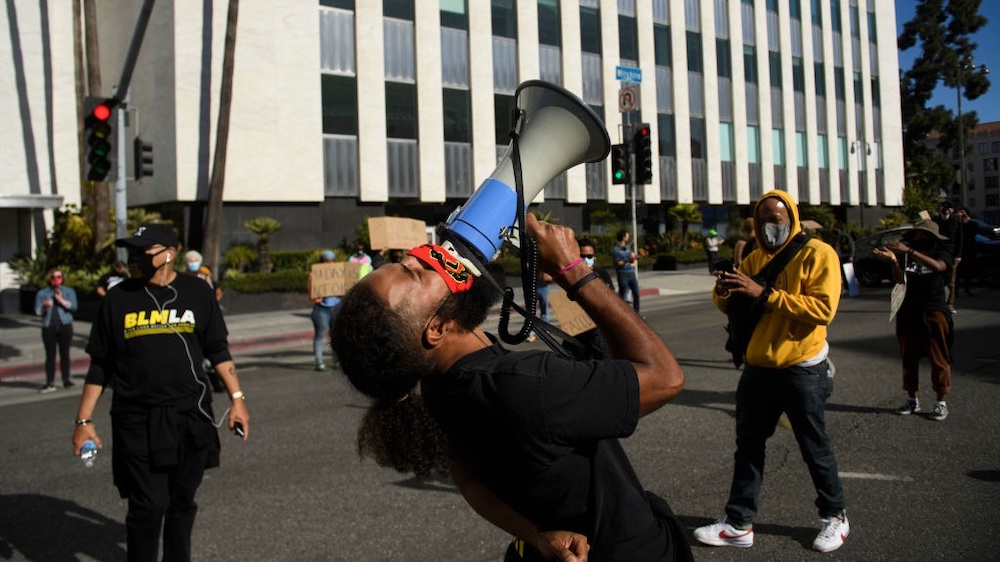If you’re interested in sharing your opinion on any cultural, political or personal topic, create an account here and check out our how-to post to learn more.
____
In Democracy in Black, author Eddie Glaude stated how much of what happens in Black America is not a matter of national concern — unless it threatens people who “really matter.” In the American model of democracy exist a subtle lack of commitment to Black Americans pursuit of justice. Issues faced in Black America rarely precipitate a political crisis unless these issues disrupt the quality of life for middle-upper class citizens and the bottom-line of big businesses and capitalist: people who really matter. I broach this topic of discussion as I review the highlight reel of an extremely long summer full of pain, suffering and social fatigue within the Black community.
Overnight a seemingly unified voice of Black lives matter was subsumed by institutions, displayed through content in various places like Amazon and Netflix, and plastered on billboards, stadiums, websites, t-shirts and face masks like never before. It was also co-opted by higher education, a place in which Black students have never fully felt welcomed. Given all the cosmetic support seen around the world, what has been and still remains are the unchanging concerns that plague Black America and its benefits toward a class of people who really matter.
Since 1619, when the first Africans touched American soil, there has been an intentional disinvestment in Blackness. For example, Black Americans lead all racial groups in being most impacted by poverty while dealing with a median household income that is nearly half of their white and Asian counterparts.
The claim to end poverty often results in the displacement of Black and brown families from their very own communities. Trendy words, like “re-invest,” become code for certain classes of families to enter newly transformed “ghettoes” and historically unsought after communities. Better known as gentrification, Black communities experience a transformation that is often unrecognizable and inaccessible. Let it be known, these changes are largely benefiting those who “really matter.”
For example, three years ago, gentrifies wanted to rename Harlem, a city where Black families like mine had lived for generations. This idea was spearheaded by real estate agents and urban developers looking to find fiscally beneficial ways to “reinvest” in Black neighborhoods that would in turn make communities unrecognizable to its current inhabitants and eventually unaffordable. The gentrifying change of Black communities welcomes in the demographic change to local schools.
Education has always been an area of most concern within Black communities. We see a rise of investment toward policing and incarceration, yet budget cuts in funding for education. Cities such as Memphis, Rochester and Philadelphia have challenged cities gross police budgets that have outweighed not only K-12 school budgets but also the budgets of library and youth services.
The massive spread of publicly funded yet privately owned charter schools have massively spread across Black urban areas. The investment into charter schools in Black neighborhoods have allowed for capitalist to benefit from the struggles of Black and brown communities in schools.
Private management of public schools by elite capitalists often lead to strict ideals of what success looks like. It is these ideals that are not always culturally relevant to Black communities. These capitalists are given free range to dictate policies and curriculum, select school leaders and staff and maintain the criteria and standard for “acceptable children.”
To date, student achievement in charter schools have not been proven to be significantly better than public schools; yet many believe charter schools are the better choice. Ultimately what this means is: American democracy as allowed for those who “really matter” to profit off of the struggles of Blacks while dictating what they deem necessary for success.
I say all of this to say, in 2020 there continues to be minimal urgency to enforce real and impactful change for Black lives and families.
Institutions of higher education aren’t pushing back on government and filing lawsuits as they swiftly did for international students. Many Americans do not believe there exist institutional racism.
As Black people, it seems as though investment and justice must come from us. We can learn from families similar to those in Georgia who used cooperative economics to create a solution to the ever persisting problems faced.
If we don’t invest in ourselves together, other groups will continue to take our issues and turn it into profit. We will continue to be disproportionately impacted by the horrors of a racially charged society. We will continuously see how what happens in Black America isn’t of national concern unless it impacts those who “really matter.”

